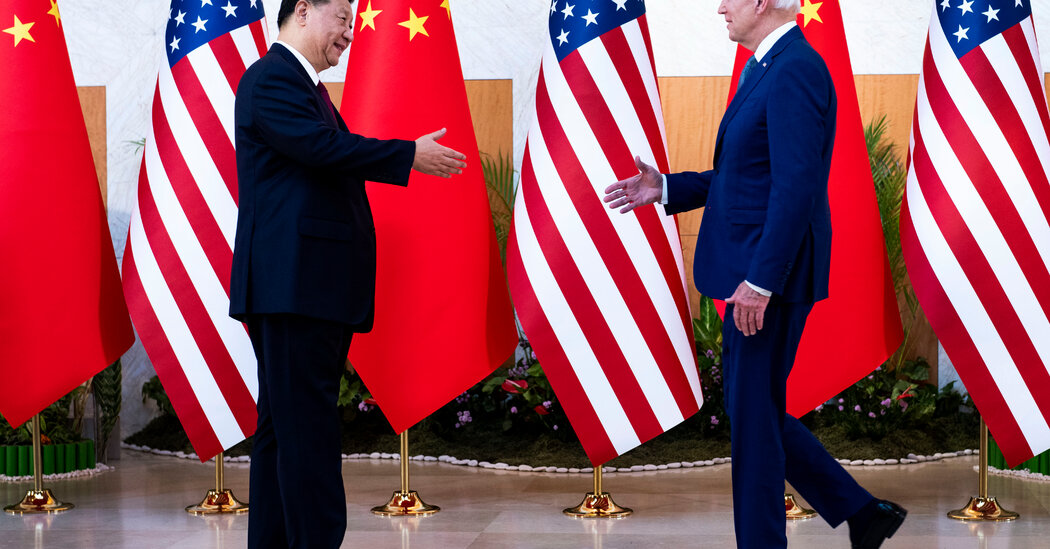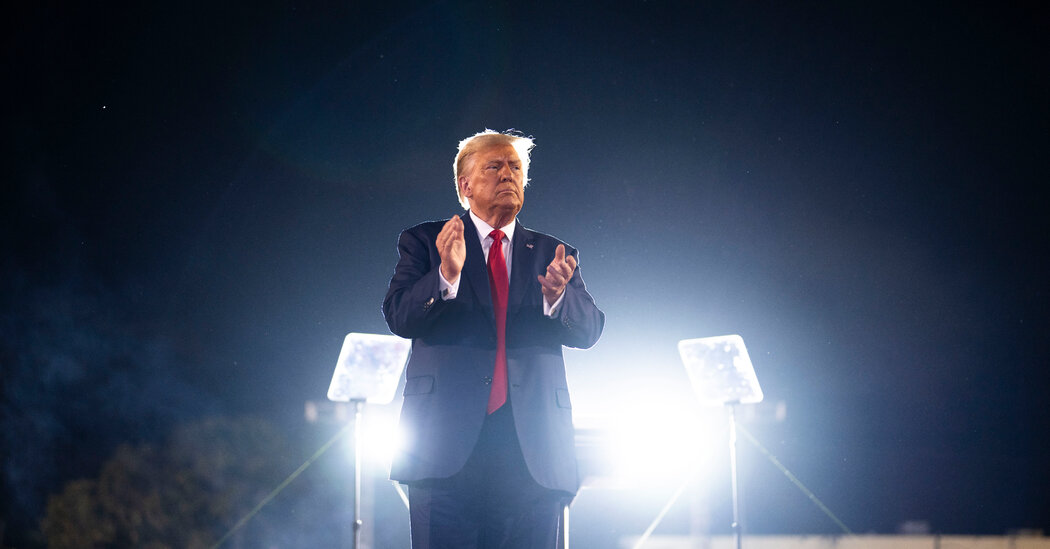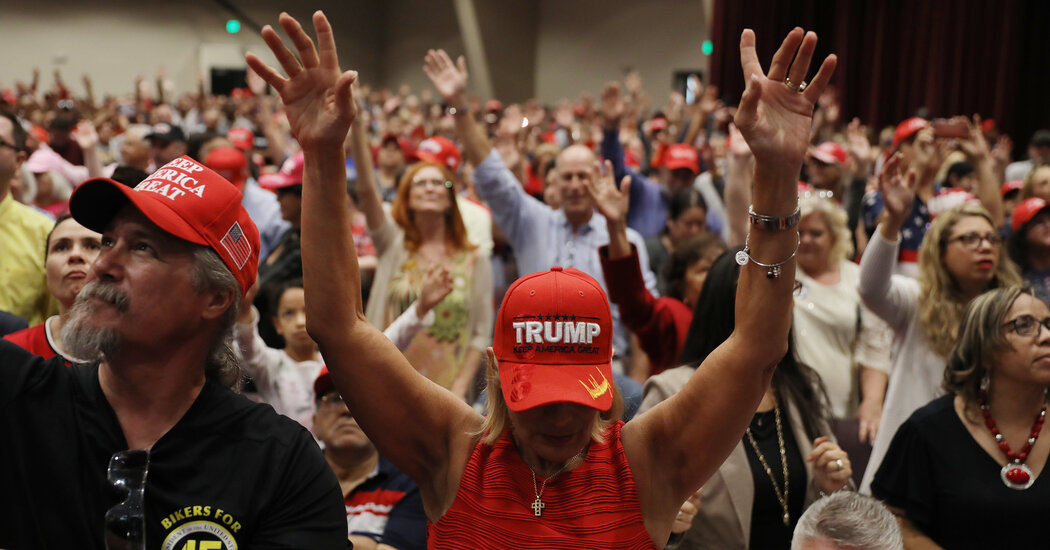With Tensions Mounting, Biden and Xi Try a Warmer Tone
BALI, Indonesia — After months of deepening contention between the United States and China, President Biden and President Xi Jinping met in person for the first time as national leaders on Monday with a tone of mutual engagement that acknowledged that both their countries faced challenges from global conflict and economic headwinds.
When their meeting began, they greeted each other like old companions. They agreed that neither wanted competition between their two superpowers to erupt in conflict. And after nearly three hours spent together, they promised more efforts to repair a relationship that has been at its most rancorous point in decades.
None of that hid the deeply divergent views behind their disagreements, including over the future of Taiwan, military rivalry, technology restrictions and China’s mass detentions of its citizens. But with the stakes so high, both Mr. Biden’s and Mr. Xi’s language represented a choice not to gamble on unrestricted conflict but to bet that personal diplomacy and more than a decade of contacts could stave off worsening disputes.
“We’re going to compete vigorously, but I’m not looking for conflict,” Mr. Biden said at a news conference after the meeting. “I’m looking to manage this competition responsibly.”
Both came to Bali for a meeting of the Group of 20 leaders after a moment of political success: Mr. Biden with better-than-expected results for Democrats in the midterm elections; Mr. Xi after securing a groundbreaking third term as Communist Party leader. But instead of swaggering into their meeting ready to contend over what Mr. Biden has called a struggle between democracy and autocracy, each appeared to agree that his national interests had been made vulnerable by the pandemic, climate change, a war in Europe and economic crisis.
“I absolutely believe there need not be a new Cold War,” Mr. Biden said.
Both men appeared eager to downplay the idea that Washington and Beijing were careening toward confrontation, particularly over Taiwan, a self-ruled island claimed by China. Taiwan is the focus of a military and diplomatic pressure campaign by Beijing that has raised fears of a potential invasion. But Mr. Biden told reporters that he did not believe a Chinese invasion of Taiwan was “imminent.”
And though both sides came and left without finding common ground on their most contentious disagreements — “I’m not suggesting this is Kumbaya,” Mr. Biden said — they found some accord. That included agreeing to reopen climate negotiations that had been frozen in recent months, a potential step forward in the effort to avert catastrophic global warming.
The two pledged to renew efforts to have cabinet-level officials in Washington and their counterparts in Beijing meet more often. Secretary of State Antony J. Blinken plans to visit China early next year to follow up.
“Because of their solid personal relationship, there is reassurance in hearing directly from the other leader,” said Daniel R. Russel, a former assistant secretary of state for East Asian and Pacific affairs who accompanied Mr. Biden on his meetings with Mr. Xi when Mr. Biden was vice president. Still, he said, “there is no reason to think either leader will ease up on their respective priorities or begin to show new deference to the other’s so-called core interests.”
During their talks, Mr. Xi seemed to appeal to Mr. Biden to use his authority to rein in the distrust of China that pervades Washington these days.
“China has never sought to alter the current international order, does not meddle in American domestic politics and has no intention of challenging and replacing the United States,” Mr. Xi said in their talks.
But their cordial exchanges only marked the tentative start of any effort to resolve a host of thorny disputes.
“Both leaders went into the meeting seeking to buy time and take down the temperature, albeit for different reasons. They accomplished that,” said Evan S. Medeiros, a Georgetown University professor who was President Barack Obama’s top adviser on Asia-Pacific affairs. “The real test of this meeting is not today, but in six to 12 months, when we see if problems were managed or worsen.”
As recently as last month, Mr. Biden’s National Security Strategy cast China as a strategic rival with “the intent to reshape the international order,” while Mr. Xi warned of an increasingly perilous world in which unnamed foes — implicitly, the United States and its allies — aim to “exert maximum pressure on China.”
The two leaders’ comments on Taiwan revealed that it remained their most dangerous point of potential collision.
Chinese Communist Party leaders and many Chinese people adamantly believe that Taiwan is Chinese territory. Most people on Taiwan see themselves as a distinctive and proudly democratic society that could never survive under Chinese sovereignty.
Tensions have worsened in recent years under Mr. Xi’s rule, as China’s military strength has grown closer to the point where it could try to seize control of Taiwan by force, risking a confrontation with the United States.
Under an ambiguous “one China” policy, successive American presidents have said that they “acknowledge” Beijing’s claim to Taiwan, but have not gone as far as endorsing or accepting that claim.
During their meeting on Monday, Mr. Biden said that he stood by the “one China” policy, but also warned Mr. Xi that China’s aggressive stance toward the island threatened stability in the area and could, ultimately, jeopardize the global economy.
Mr. Xi did not mince words, either, according to China’s summary of the talks. Taiwan is “the core of China’s core interests, the foundation of political foundations in the China-U.S. relationship and a red line that cannot be crossed in the China-U.S. relationship,” Mr. Xi said.
While Mr. Xi’s public comments on Taiwan were viscerally blunt, his responses to Mr. Biden’s entreaties about the Russian invasion of Ukraine were more murky. Unlike the Biden administration’s account of the talks, the summary from the Chinese delegation did not mention the leaders’ agreeing on opposing threats by President Vladimir V. Putin of Russia to use nuclear weapons in Ukraine. Instead, according to the Chinese account, Mr. Xi said that “a complicated issue does not have a simple solution,” and that “confrontation between major powers must be avoided.”
When asked by a reporter about tensions over North Korea’s nuclear program, Mr. Biden said he was not certain that China could contain that threat and that he had told Mr. Xi he must try to persuade the North Koreans not to engage in long-range nuclear tests.
“I’m confident China is not looking for North Korea to engage in further escalatory means,” Mr. Biden said.
Both sides needled the other over economic issues. Mr. Biden told Mr. Xi that the United States and China had to work together on debt relief, a reference to a push that administration officials have been making ahead of the G20 summit in hopes of avoiding a cascading global financial crisis. Several economic factors, including rising global interest rates, have left several countries unable to pay their debts. In many cases, China is the biggest creditor and has resisted any write-downs.
The Chinese delegation, in contrast, said in its summary that Mr. Xi had rebuked Mr. Biden for economic policies meant to boost American manufacturing at China’s expense, including issuing rules meant to prevent China from buying and manufacturing some kinds of advanced semiconductors that can be used to deliver hypersonic missiles or potentially crack the U.S. military’s most advanced codes.
The Chinese description of the meeting suggested that those policies and others meant to redirect American supply chains away from China “completely violate the principles of market economy and undermine the rules of international trade.”
But neither leader went into the meeting expecting the other to concede on their major areas of disagreement. The point, they said, was to keep lines of communication open to prevent the relationship from devolving further.
“I think that we understand one another,” Mr. Biden said, “which is the most important thing that can be done.”
Reporting was contributed by Alan Rappeport and Jim Tankersley from Bali, Indonesia; John Liu from Taipei, Taiwan; Ana Swanson from Washington; and Joy Dong from Hong Kong.



